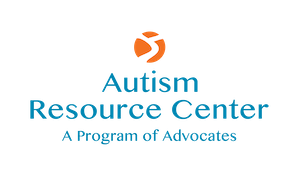This journey we are on, it’s a long road. Sometimes it seems we aren’t making any progress. The Holy Grail – Progress. Sometimes it comes so slowly it is almost imperceptible. You work for days, weeks, months, sometimes years to teach your child a new skill or behavioral response. It becomes such an ingrained behavior for you that you automatically go to hand over hand, with verbal and visual prompts, that you run the risk of over helping at times, creating dependency when your goal is independence. I know for us, it took 16 years before my son was able to get ready for his day independently. It wasn’t until I sat at the kitchen table one day drinking coffee and reading the newspaper for longer than I should have, and when I looked up found that Ed had simply gone about his way and was dressed and ready for school that I realized he didn’t need my hovering or prompts .
Conversely we can easily undo competency by doing FOR our children. I know I was frequently guilty of this, my daughters would often take me to task for doing for their brother and give him a not so gentle prod to get up and do for himself. His older sister merely has to say “Hey Sally Cakes ” ( her pet name for him when he is being a slacker) and he will get a sheepish grin and get up to do something for himself that he was trying to “con” me into doing for him. I think it comes from years of my simply doing for him because it was quicker or easier for me than to push him through the steps and stay on schedule. It may also originate in my nurses training, I am a caretaker.
Being passive is a behavior that we routinely reward for those with disabilities. Those who work with disabled individuals place a premium on compliance. Like me, they sometimes find it quicker and easier to do FOR someone than to take the time to be patient and teach someone HOW to do for themselves and wait for that slow progress to competency. But with that passivity comes learned helplessness. Our society has a tendency to see disability in the medical world’s paradigm of needing care and to give that care we require those we care for to give up control, to be passive recipients of our caring. This is fine when an illness or surgery incapacitates someone for a few days, but in the context of disability applying this stance insures that the individual remains helpless throughout their lifetime. This approach to disability is slowly changing, through systemic change, but culturally it will take much much longer for the collective attitudinal posture to change. We, parents and siblings of those whose lives are circumscribed by this cultural bias, must help this change happen.
We fight so hard for the incremental progress our kids make through their school years but then we risk losing it all when they become adults and they enter a system where too often passive compliance and not making any waves are rewarded and caretakers “care ” too much.
Our role as advocates never ends. To teach others to presume competence we must also guard against modeling the opposite. Our tendency as parents is to protect and keep our children safe, but in doing so we often inadvertently deny them the chance to grow as a person. So let’s all examine our own behaviors and what hidden messages we send out to others about autism in general and our own children specifically. Sometimes the best thing we can do is get out of the way.


